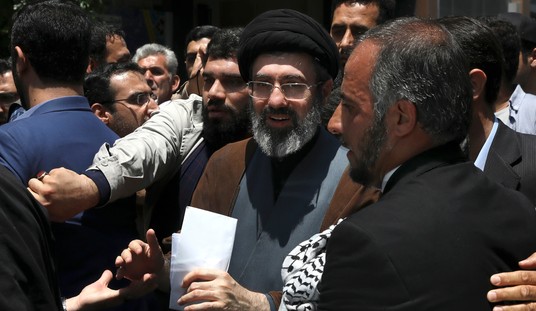Does it matter, though? As you scan the numbers, bear in mind that when Pew asked people whether they’ve heard anything about O’s speech on NSA reform last Friday, just eight percent said they’d “heard a lot.” There was no shortage of news coverage about it; if you only heard a little — or nothing at all, as 50 percent of those sampled said — it’s probably because you’re just not paying much attention to this subject.

The public went from evenly split last summer, when Snowden’s revelations first broke, to 40/53 against. Maybe more importantly, it’s Obama’s own base that’s seen the sharpest reversal, with black and Latino voters who gave him the benefit of the doubt at first now disapproving mildly of NSA surveillance. (In fact, not a single demographic group at this point shows more support for the practice than opposition.) No matter how many speeches O gives in its defense, the drip-drip of new Snowden leaks is drowning his message, which is why suddenly we’re seeing stories like this one leaked to major papers like the Journal. We’ve passed the point on this where Obama can trust his most loyal supporters to circle the wagons for him. “Obama says the program works” isn’t good enough, even for Democrats. He’s got to show his work, if he can.
Or does he? How much pressure is Obama really under if only eight percent can be bothered to stay on top of a presidential speech about new reforms? Seems to me the significance of the Pew numbers is less about O needing to make further reforms than the fact that this is now likely to be a 2016 issue for both parties. The largest number in that table, after all, is the amount of opposition to surveillance among tea partiers — 68 percent, where no other group is above 60. That’s litmus-test territory for right-wing candidates in the primaries, which is one reason why Ted Cruz is demanding “far more protection for law-abiding citizens” under the program. The most conservative candidates in 2016 will all be flavors of Rand Paul on this issue.
Interestingly, though, non-tea-party Republicans have also moved from slight support on balance for the program to double-digit opposition, which complicates the expectation that the GOP’s establishment candidate will be vociferously pro-NSA. Same thing on the left — Democrats are against surveillance only very narrowly on balance, but that’s because it’s their guy whose name is on the program right now. That dynamic will change as O’s presidency winds down; as noted, it’s already changed among Democratic blocs like blacks and Latinos. Hillary will thus have good reason to call for reforms, as will Christie or Jeb or whoever emerges from the center of the GOP. And of course, so will Rand Paul or Cruz or whoever wins the tea-party primary. The only question in the primaries, increasingly it seems, is how ambitious the scope of reform will be. Can’t expect much from either the Democratic or Republican establishment on that point, but maybe, given the relative public disinterest in the topic, the public will take what it can get.








Join the conversation as a VIP Member